4 Ways to Scale Personalized Learning

This article focuses on opportunities to scale personalized learning. The author identifies design elements that support national, district and regional growth, and offers links to several reports from recent months that show strategies on measuring and scaling personalized learning. Source Organization: Getting Smart Visit the Resource
The Learning Policy Institute
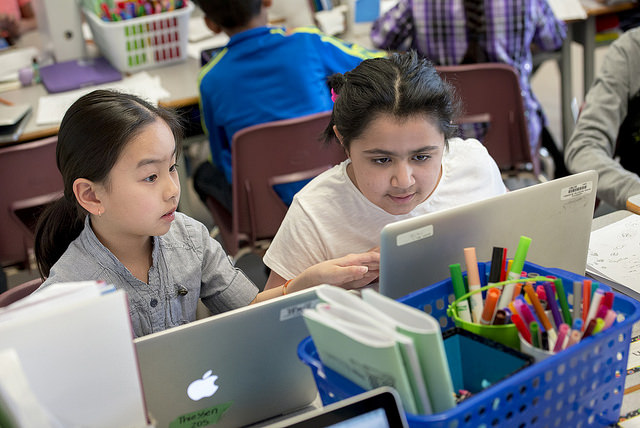
This organization is a national education think tank focused on K-12 learning. The Learning Policy Institute conducts, commissions, and communicates high-quality research to shape policies that support equitable and empowering learning for all children. The Learning Policy Institute’s work includes research and policy analyses surrounding the topics of early childhood learning, deeper learning, educator quality,… Read More ›
The Role of Learning Progressions in Competency-Based Pathways
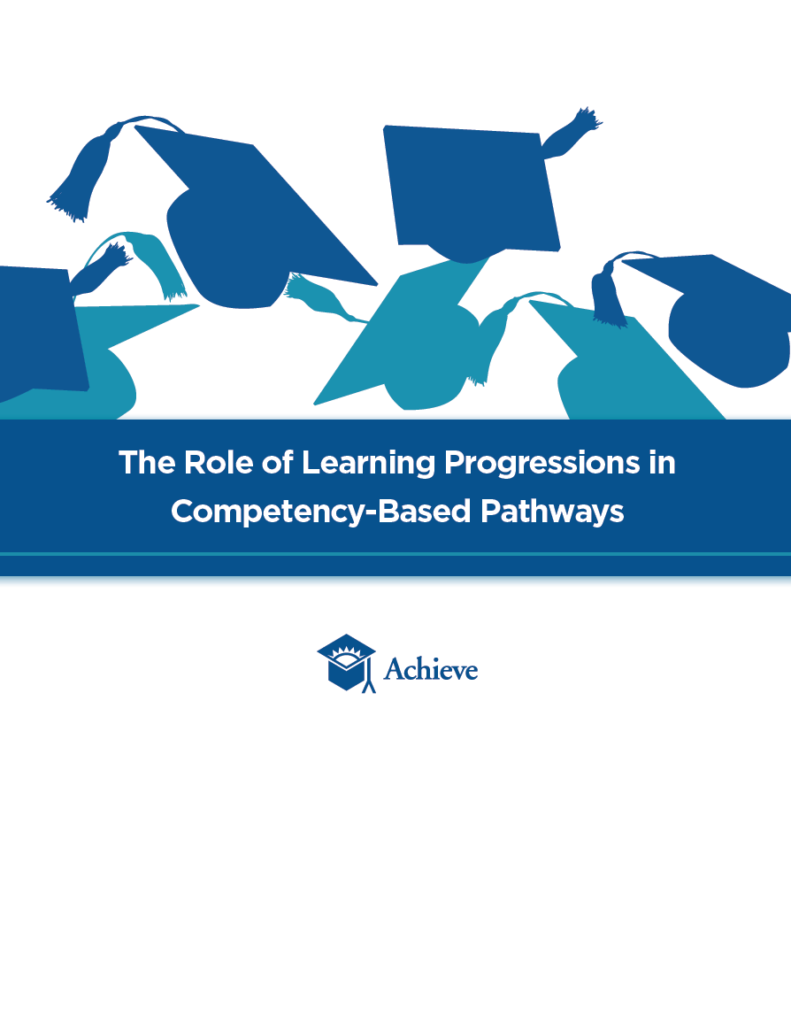
This report focuses on defining learning progressions and learning progressions research, with a particular focus on how state and district leaders can begin to support transitions into competency-based practice. After a 2015 series of conversations with experts in the learning sciences, Achieve convened a set of state leaders, researchers, and practitioners in May 2015 to… Read More ›
Students at the Center Research Series
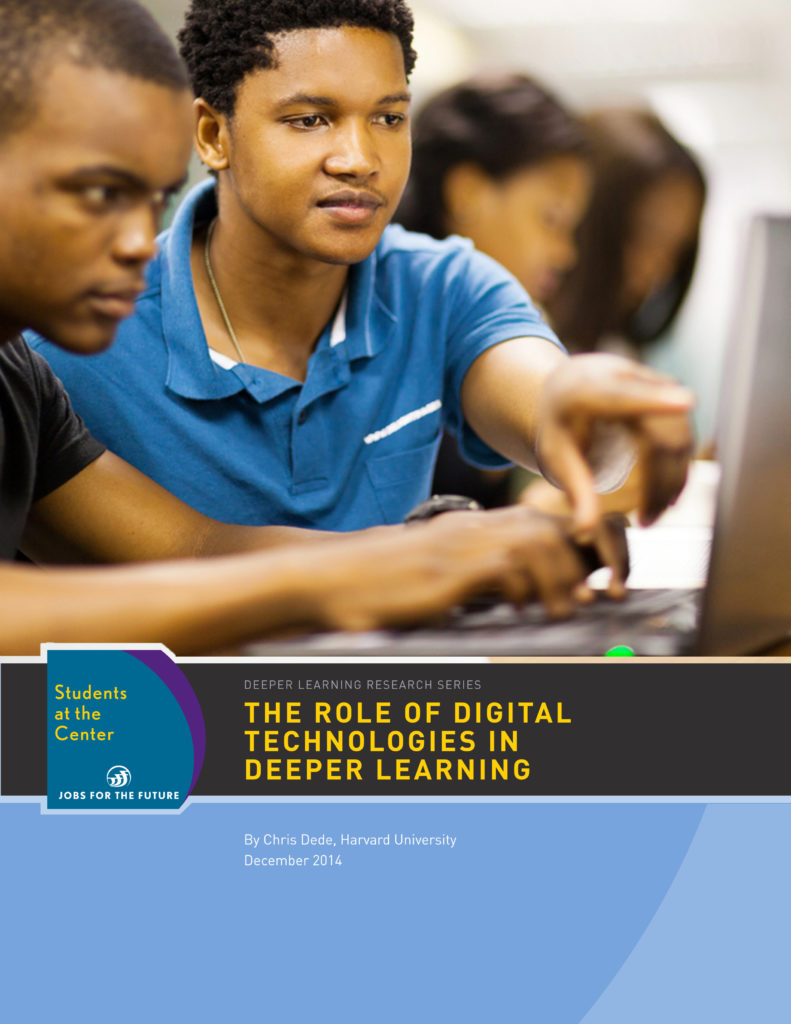
Students at the Center began with a series of nine research papers, developed in partnership between Jobs for the Future and the Nellie Mae Education Foundation, drawing attention to the importance of engaging each student in acquiring the skills, knowledge and expertise needed for success in college and a career. In fall 2013, Students at… Read More ›
The Underutilized Potential of Teacher to Parent Communication: Evidence from a Field Experiment

This paper documents the findings of a study performed in which teachers and school administrators in a summer high school credit-recovery program sent weekly one-sentence messages via text message, email, or phone call to parents regarding their children’s performance. The findings show that communication between the school, teachers, and parents is imperative for the success of the children. Source Organization:… Read More ›
Deeper Learning for Students with Disabilities
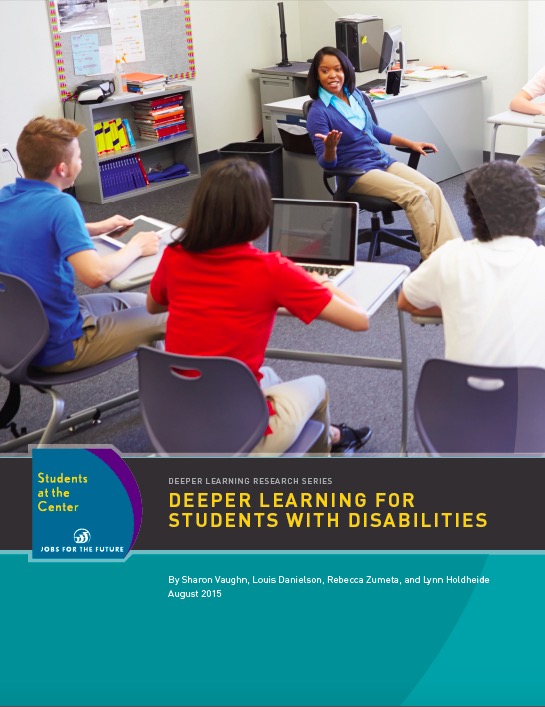
This report focuses on deeper learning for students with disabilities. The U.S. Department of Education’s Office of Special Education Programs now requires states to fully disclose the precise steps they will take to ensure better outcomes for students with disabilities. This new requirement can aid educators in implementing effective practices for providing deeper learning opportunities… Read More ›
Putting it Back Together Again: Reframing Education Using a Core Story Approach

This memo describes the research conducted on current public understanding of education and lays out a new storyline that can better motivate members of the public to become involved in education reform, supporting student-centered approaches to learning. It outlines the default cultural models the public holds regarding key aspects of education such as the education… Read More ›
An Up Close Look at Student-Centered Math Teaching

This executive summary on a new study from AIR finds that students in high-quality, student-centered classrooms are more engaged and demonstrate higher performance on problem-solving assessments. When teachers use student-centered techniques to engage students in more active and authentic ways, they can transform math classrooms into lively learning environments in which students take charge of… Read More ›
Let’s Get Real: Deeper Learning and the Power of the Workplace
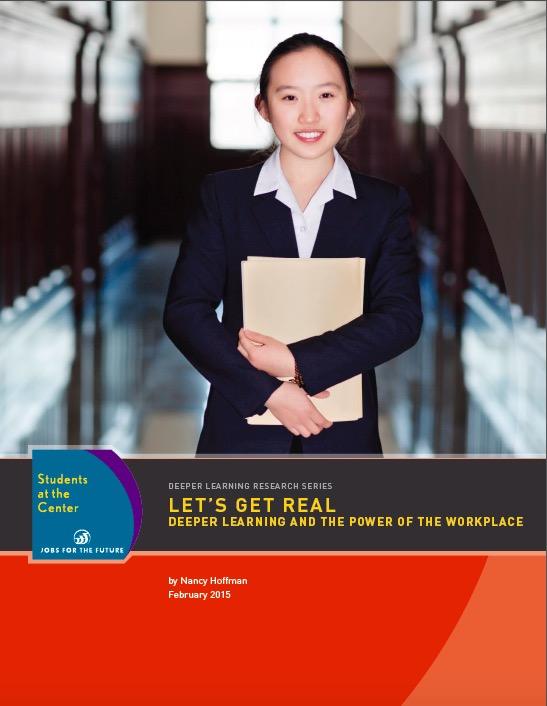
In this report, Nancy Hoffman argues that in a period when very few teens have access to jobs, high school experience must incorporate gradual exposure to the workplace. Educators today assert that “college and career readiness” should be the goal for every high school student, but “career readiness” is too often an empty tagline. What… Read More ›
Civic Education and Deeper Learning
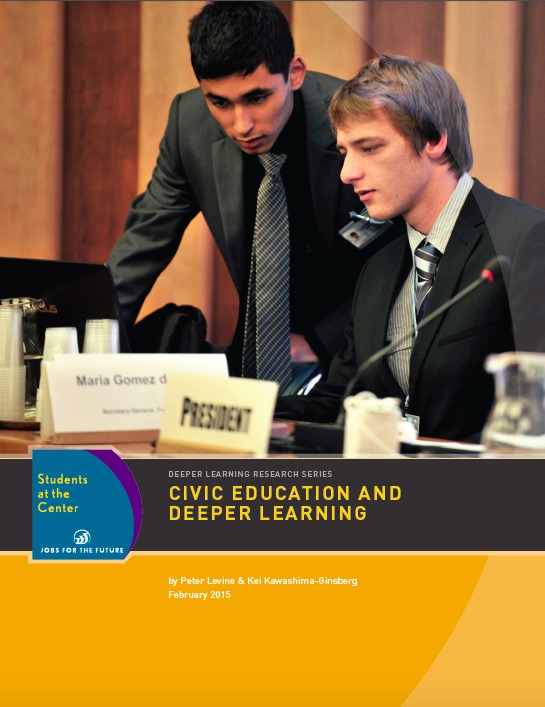
This report, authored by Peter Levine and Kei Kawashima-Ginsberg, proposes that the turn toward deeper learning in education reform should go hand in hand with a renewed emphasis on high-quality civics education. Not only does deeper learning have great potential to promote civic outcomes and strengthen our democracy but, at the same time, civic education… Read More ›
Student-Centered Schools Study: Closing the Opportunity Gap

The Student-Centered Schools Study, funded by the Nellie Mae Foundation, looks closely at four California high schools that use either the Linked Learning or Envision Schools model to achieve positive outcomes for all their students. These schools all serve predominately low-income students and students of color. These signature models of student-centered learning can inform efforts… Read More ›
Ready for College and Career
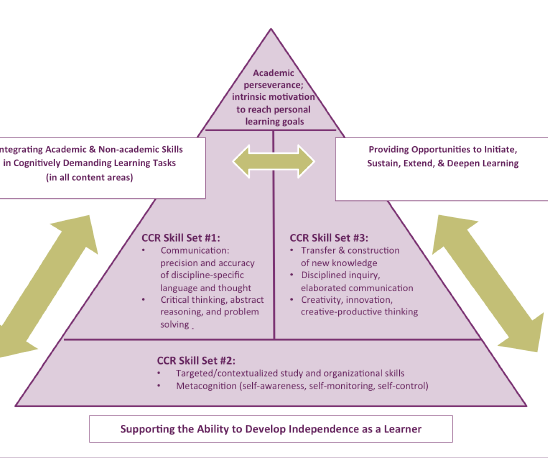
The report finds that a range of cross-cutting skills like communication, innovation and self-regulation are crucial to student success. Student-centered approaches to learning can equip students with a range of skills necessary to succeed on the Common Core State Standards exams, in college, and in their careers. Source Organization: The Nellie Mae Education Foundation VISIT… Read More ›